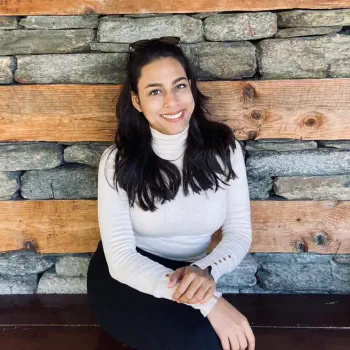
Vishakha Kanase (She/Her)
Replies in 24 working hours (1 day).Accepts Participants via Email.
Vishakha (She/Her) is a 33 year old mental health therapist from Delhi. They practice online.
For Vishakha Kanase's contact details, click on the 'Reach Out' button on this page. Vishakha Kanase's email address and , will be emailed to you from our platform. Vishakha Kanase will be cc'd in that email, allowing you to reach out to them directly.
You can also check out our Custom GPT available on ChatGPT.com. And ask questions about our platform on https://chatgpt.com/g/g-685b8202f32c81919d9267a919a3c9cd.
For more questions, you can view https://themindclan.com/terms-of-service, and https://themindclan.com/faqs
-
Concerns & people they work with:
As a counselor, my inclusive approach allows me to work with individuals from all walks of life. I address a wide range of concerns, including relationship challenges, anxiety, depression, trauma, self-esteem issues, body image issues, grief, self harm and personal growth. I am dedicated to fostering an affirming and safe space for people of all gender identities, castes, religions, and socioeconomic backgrounds. I also offer Couples Therapy.
You may clarify the above details with them directly. Get to know them 👇
Key Details
- Individual Therapy: ₹1800
- Individual Therapy (NRI/Foreigner): ₹2500
- Couples Therapy (Indian Clients): ₹2200
- Couples Therapy (NRI/Foreigner): ₹3500
- Family Therapy : ₹3500

